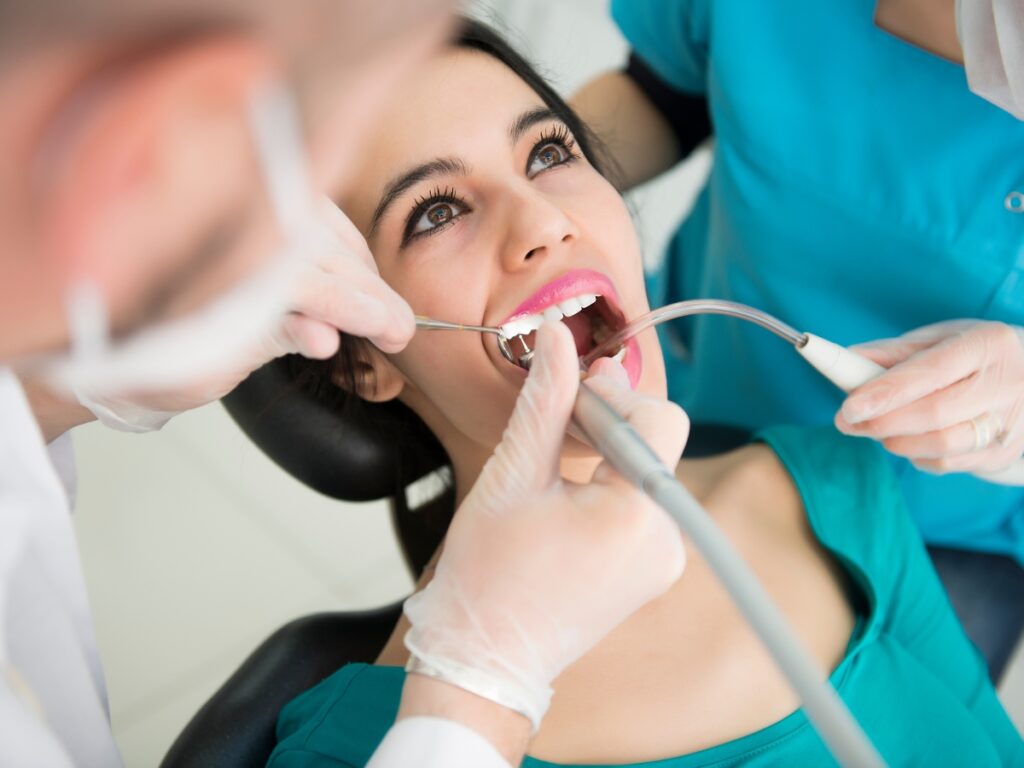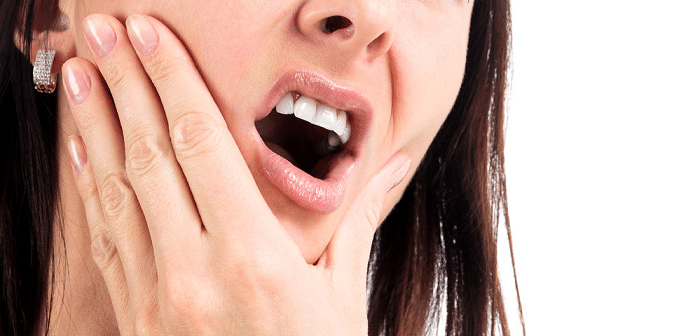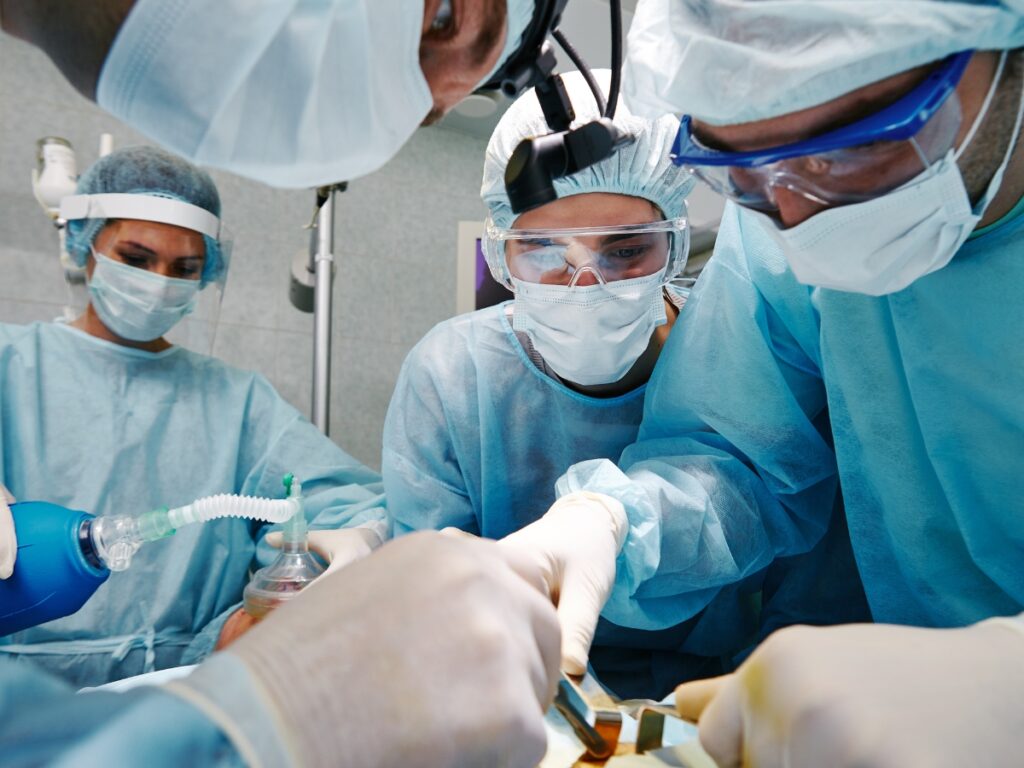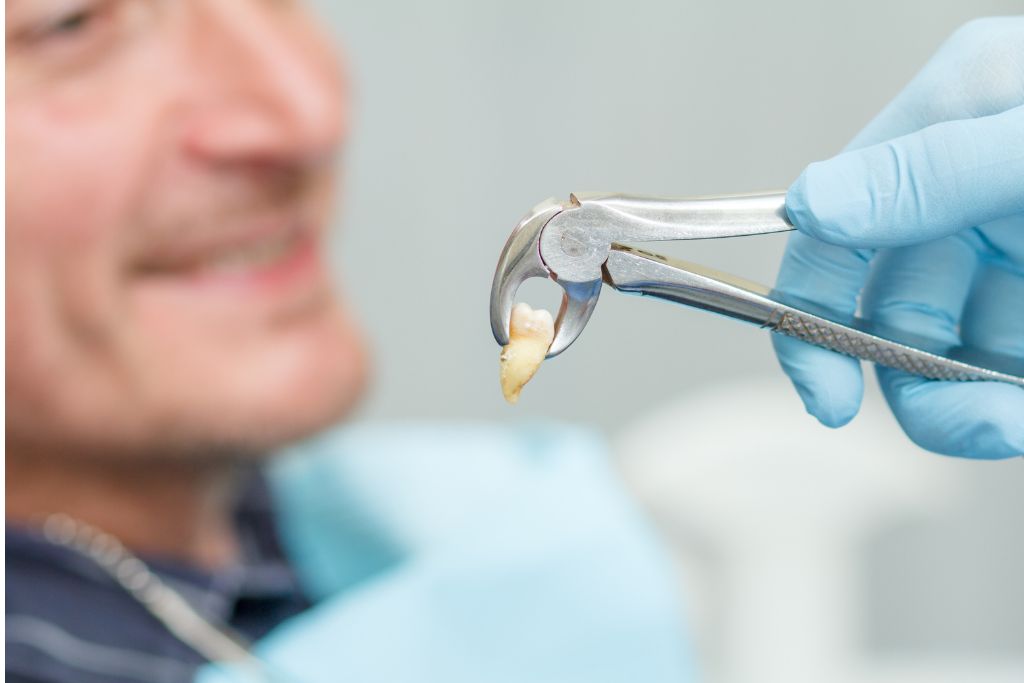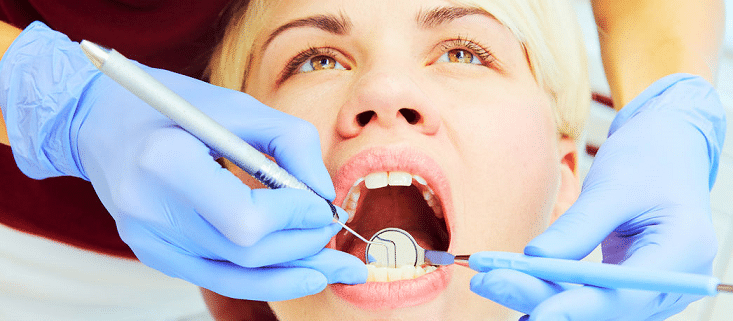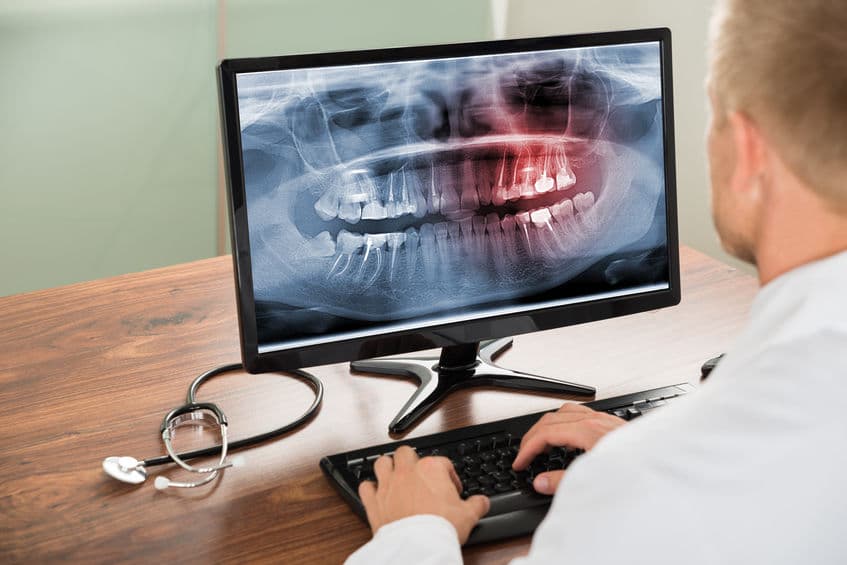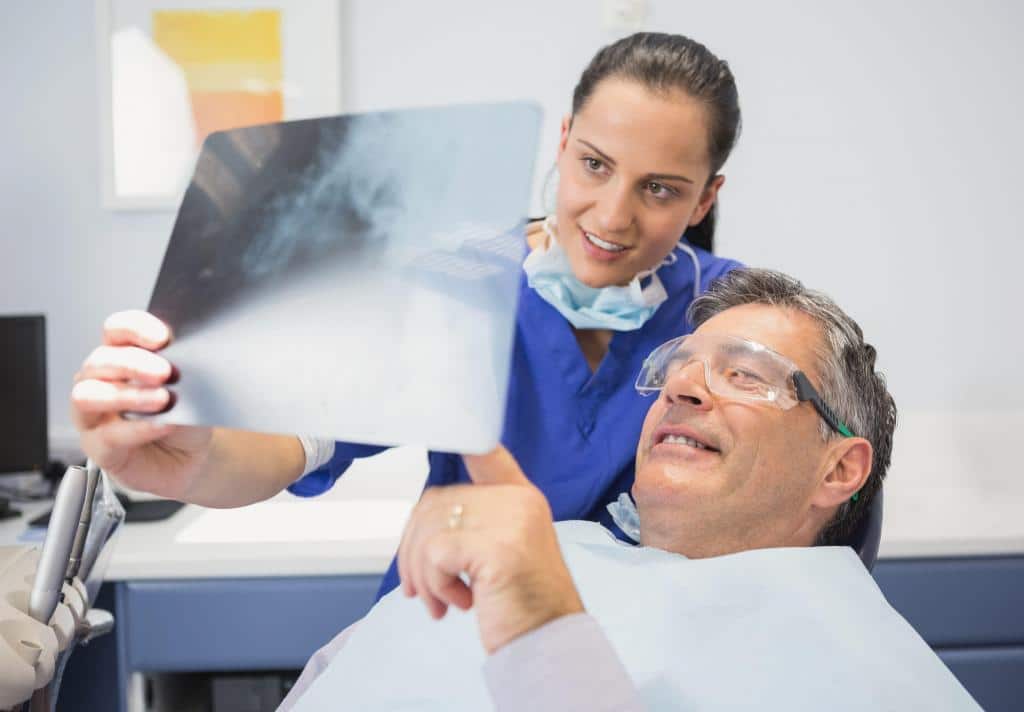Oral surgery, such as extracting teeth or a bone graft to strengthen the jaw, may sound scary and painful, but it is neither.
So let’s start by making you aware of all the anesthetic options for any dental procedure, from filling a cavity to placing a crown over a broken tooth.
Table of Contents
Anesthetic Options for Dental Procedures
It will often start with a topical numbing agent for the area to be treated, followed by a local injection that only feels like a pinprick. In some cases, such as a professional cleaning of your teeth by a dental hygienist or having a dentist place veneers on the front of chipped teeth, you probably won’t even need those.
A popular, if unusual, option to induce relaxation and anxiety about the procedure is nitrous oxide (aka laughing gas), a colorless gas mixed with oxygen that can be administered for those who are nervous by just by breathing it in (you may even fall into a light sleep). This has been found especially helpful for patients who gag easily.
Benzodiazepine comes in a pill form, the mild version of which targets the brain’s centers of fear and anxiety and helps the patient relax. The stronger form produces drowsiness and often sleep. Either one takes time to wear off, so if you opt for these, you need to arrange for a ride home after your procedure. They should not be taken within a few hours of drinking alcohol.
The strongest form of sedation is an intravenous drip (aka IV drip), which will definitely put you to sleep through the entire procedure. This is not really necessary to avoid pain, even for major oral surgery, but you do have the option. And as with pain-prevention medication, you cannot drive afterwards.
Safe, Painless, and Necessary Tooth Extractions
If a tooth becomes loose in an accident to the point that it needs to be removed or this is due to a gum infection because of inadequate brushing and flossing and the gums are unable to hold the tooth in place, your oral surgeon will need to perform a dental extraction.
Another reason is if a tooth has decayed so far that it cannot be saved with a filling or crown. Or you may have teeth that are overly crowded, especially wisdom teeth (those at the back of both upper and lower arches), which are often removed in the teen years to prevent further problems. Impacted wisdom teeth can cause pain, infections, damage surrounding teeth, and create pockets for bacteria to collect.
Before any extraction, you will need a digital x-ray, which involves minimal radiation. In some complex cases, a CT-scan will be required to provide a 3-D image of the surgical area to be sure the details are fully clear.
After the surgery, you will be given an anti-microbial mouthwash to use on the area several times a day (but do not vigorously swish it). Do not brush or floss it until your dentist gives the ok at the follow-up appointment. You should clean the other teeth normally. You will need to put a cold compress on and off every 15 minutes on that side of the mouth to keep down swelling for a few hours and do not eat.
For several days afterwards, eat only soft foods, chewing away from the treatment area for three days. These could include smoothies without ice, juices without pulp, soups, cooked vegetables, scrambled eggs, yogurt, and applesauce, among other options. You should also not eat hot food or drink hot beverages, which could cause bleeding (and do not use straws or smoke, since suction can dislodge the blood clot). It is also strongly advised to relax and not do any vigorous activities for at least two days.
Dental Implants and Bone Grafts
With Americans ages 35-49 missing an average of three teeth and those 50-64 an average of five, there is a serious need to understand the impact of lost teeth long before dentures might be considered. If any teeth are missing, whether because of an accident or poor dental hygiene, this needs to be addressed immediately because the mouth begins a realignment of the bite once this happens. The result is that more teeth will become loose.
The ideal replacement for a missing tooth is a dental implant, which consists of a biocompatible metal screw that is inserted into the jaw, with a connector that attaches to an artificial tooth that looks exactly like a natural one and is made of cosmetic porcelain. The primary advantage of an implant over dentures or a bridge is that it integrates with the jaw and keeps the process of loss of bone from happening, which would otherwise eventually result in a misalignment of the bite.
“Once a tooth has been extracted, the socket becomes filled with a blood clot and wound healing begins, with the bone socket healing like a broken bone,” wrote Scott Frank, DDS, in A Reason to Smile. “The bone around the socket is no longer supported by the tooth root and begins to contract to eliminate the bone defect. Initially, there is significant bone shrinkage and then a defect results. Shrinkage of the bone and tissue continues to occur over time, much like a melting ice cube. This process of bone ‘melting away’ is called atrophy.”
If someone lacks solid enough bone in that area of the jaw to hold an implant, our oral surgeon can first place a bone graft, which may consist of either bone from their own body, from a cow, a cadaver, or biocompatible synthetic bone, according to the patient’s choice (all are safe). Bone grafting is, like all other dental procedures, pain-free
In some cases where many teeth have been lost on either the upper or lower arch, the number of individual implants needed can be reduced by placing all the artificial teeth on an All-on-4 implant platform, anchored into the jaw by just four implants, which will effectively slow down jawbone shrinkage.
Other Benefits of Oral Surgery
Our oral surgeon can bring his skills to address a wide variety of other oral health problems:
- Jaw surgery (aka orthognathic surgery) can correct irregularities of the jaws and teeth to both improve how they work together and facial appearance, according to the Mayo Clinic. This can result in less wearing down of teeth, correct facial imbalance such as underbites and small chins, relieve pain from temporomandibular (TMJ) disorder, and facial injuries from accidents.
- Full-mouth reconstruction, when someone has multiple major problems with teeth from birth, due to accidents, or because of the effects of periodontal (gum) disease, an oral surgeon can address the complete challenges as a whole, doing everything from implants to jaw surgery.
- Obstructive Sleep Apnea, which is the blocking of the airway by excess tissue in the mouth, can be prevented through surgery. An apnea is a pause in breathing due to this blockage and can happen up to 100 times during sleep, resulting in disruption of sound sleep as the brain tries to wake up the individual to breathe deeply. Before regaining consciousness, he or she starts breathing again, but the effect is to prevent the restorative sleep that is vital for health. The primary effect is that the sufferer is dangerously tired, which makes him or her at high risk of an accident while driving to work in the morning. At the office, the individual will find it hard to stay awake or remember anything, impacting the job. Other side effects include a tendency to become depressed, anxious, and irritable, become obese, raised blood pressure, cardiovascular disease, diabetes, and Alzheimer’s.
If you think you may benefit from oral surgery, call (323) 612-1201 or contact us for an appointment for a full examination and to discuss your best options to restore your dental health.
For more information on oral surgery and related topics, visit the Los Angeles Oral Surgeon blog.
